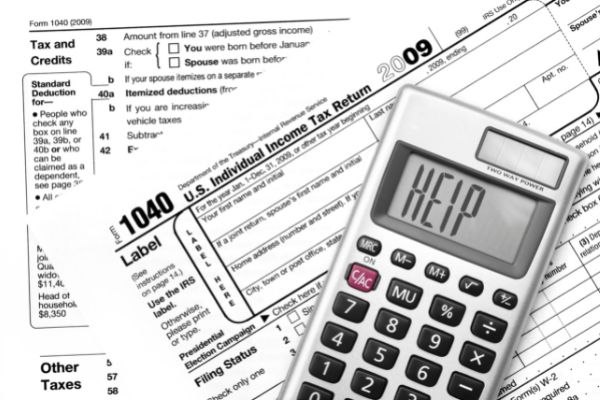![Image section]()
Can I Eliminate IRS Tax Debt in Georgia?
Many Georgia families aren't aware of it, but you can wipe out IRS debt in bankruptcy. What’s more, as long as you have filed the returns, you can include qualifying back taxes as well. At DebtStoppers, we're committed to helping people in the Atlanta area find IRS tax relief through bankruptcy. Call or text us today at 678-673-2142 to schedule a free debt evaluation with one of our skilled Georgia lawyers.
Tax Relief Options - What Will Work Best for Me?
You have multiple options for handling IRS tax obligations in Georgia, but filing for bankruptcy is the only way that offers total debt elimination. While the IRS provides choices to families struggling to catch up with their taxes, these "solutions" don't go far enough to achieve the relief folks need.
For example, the Taxpayer Advocate Service (TAS) is available to help protect your rights in IRS interactions. However, as an independent organization within the IRS, TAS has no power to wipe out your tax debts or even reduce them.
Bankruptcy, on the other hand, enables you to eliminate past unpaid tax obligations. Not only does it get Uncle Sam's hand out of your pocket, but it also wipes out the rest of your debts at the same time. It's the only option that will permanently fix all of your financial difficulties.
When filing for personal bankruptcy in Georgia, you can choose between two different types: Chapter 7 and Chapter 13.
With Chapter 7, you can discharge your unsecured debts, such as overdue taxes that fit certain guidelines. Although this type of bankruptcy allows your non-exempt assets to be sold to repay creditors, our DebtStoppers clients are rarely forced to give up a single thing.
If you decide to file for Chapter 13 in Georgia, you can reorganize and reduce your debts, including back taxes. Instead of discharging your obligations, you will consolidate them into a single, affordable monthly payment plan. As long as you stick to your 3-to-5-year plan, you'll get to keep all of your belongings.
No matter which option you choose, DebtStoppers can guide you through the process. Our years of practice helping families like yours break free from unpaid taxes allow us to expertly navigate the court system and effectively advocate for our clients' best interests.
Do I Need a Tax Relief Attorney?
If you're considering filing for bankruptcy in Georgia, it's essential that you seek assistance from an experienced Georgia lawyer. One of our attorneys can evaluate your family's situation to recommend which bankruptcy option is best suited for you and your financial goals. Call or text DebtStoppers today at 678-673-2142 to set up a complimentary consultation with one of our experienced Georgia lawyers.
No matter how it may feel now, feel, finding real relief from your IRS debt is not impossible! Call or text DebtStoppers today to get your customized tax relief solution.

